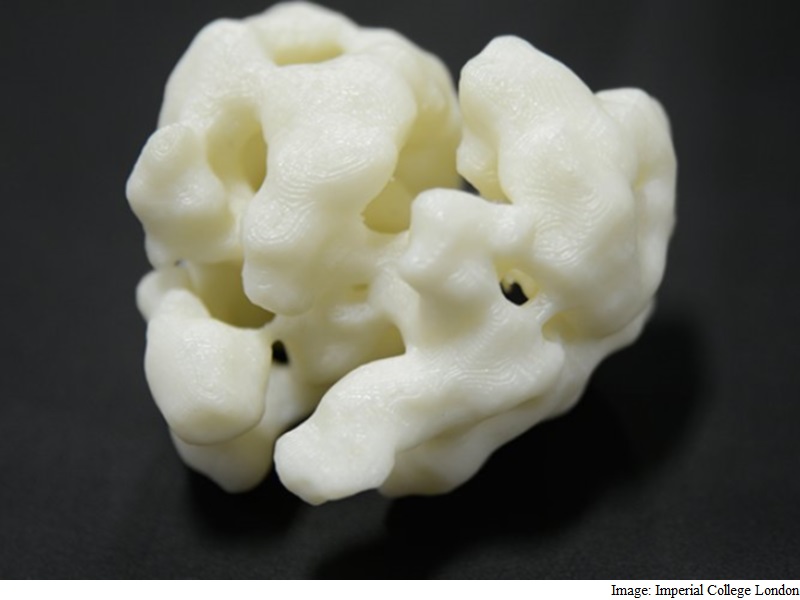- Home
- Science
- Science News
- 3D Printed Protein Complex Models to Help Treat Cancer
3D-Printed Protein Complex Models to Help Treat Cancer

When our cells copy their DNA to replicate, it is vital the process runs smoothly, otherwise it can lead to cell death or cancer.
To get DNA replication right, cells use a complex "machine", made from hundreds of components.
Researchers from the Imperial College London tried to create large-scale 3D printed models of these protein component structures, based on high resolution microscope images.
The 3D models help to visualise how tiny protein components assemble together to form the complex copying machine, each and every time it is required, said the study released on Tuesday.
Through the models, the researchers found that if they blocked one key protein, Cdc6, from joining the "machine", the "machine" jammed and DNA copying stopped.
So Cdc6 motor activity made sure the process worked smoothly, and kept the production line going, said led researcher Christian Speck. "It is a sort of quality control protein."
The results may help to improve cancer treatments. Current chemotherapy drugs kill cancer cells by damaging their DNA, but they can also harm the DNA in healthy cells. This can cause mutations that ultimately drive the cells to develop into secondary tumours.
If researchers could develop a treatment that targets the cellular machinery that copies DNA, instead of targeting the DNA itself, they may be able to reduce the risk of such side effects.
Catch the latest from the Consumer Electronics Show on Gadgets 360, at our CES 2025 hub.
Related Stories
- Samsung Galaxy Unpacked 2025
- ChatGPT
- Redmi Note 14 Pro+
- iPhone 16
- Apple Vision Pro
- Oneplus 12
- OnePlus Nord CE 3 Lite 5G
- iPhone 13
- Xiaomi 14 Pro
- Oppo Find N3
- Tecno Spark Go (2023)
- Realme V30
- Best Phones Under 25000
- Samsung Galaxy S24 Series
- Cryptocurrency
- iQoo 12
- Samsung Galaxy S24 Ultra
- Giottus
- Samsung Galaxy Z Flip 5
- Apple 'Scary Fast'
- Housefull 5
- GoPro Hero 12 Black Review
- Invincible Season 2
- JioGlass
- HD Ready TV
- Laptop Under 50000
- Smartwatch Under 10000
- Latest Mobile Phones
- Compare Phones
- Huawei Nova 13i
- Itel A80
- HMD Key
- Redmi Turbo 4
- Vivo Y200+
- Lava Yuva 2 5G
- OnePlus Ace 5
- OnePlus Ace 5 Pro
- Asus Zenbook S 14
- MacBook Pro 16-inch (M4 Max, 2024)
- Honor Pad X9 Pro
- Honor Pad V9
- boAt Enigma Gem
- boAt Enigma Daze
- Sony 65 Inches Ultra HD (4K) LED Smart TV (KD-65X74L)
- TCL 55 Inches Ultra HD (4K) LED Smart TV (55C61B)
- Sony PlayStation 5 Pro
- Sony PlayStation 5 Slim Digital Edition
- Blue Star 1.5 Ton 3 Star Inverter Split AC (IC318DNUHC)
- Blue Star 1.5 Ton 3 Star Inverter Split AC (IA318VKU)

















